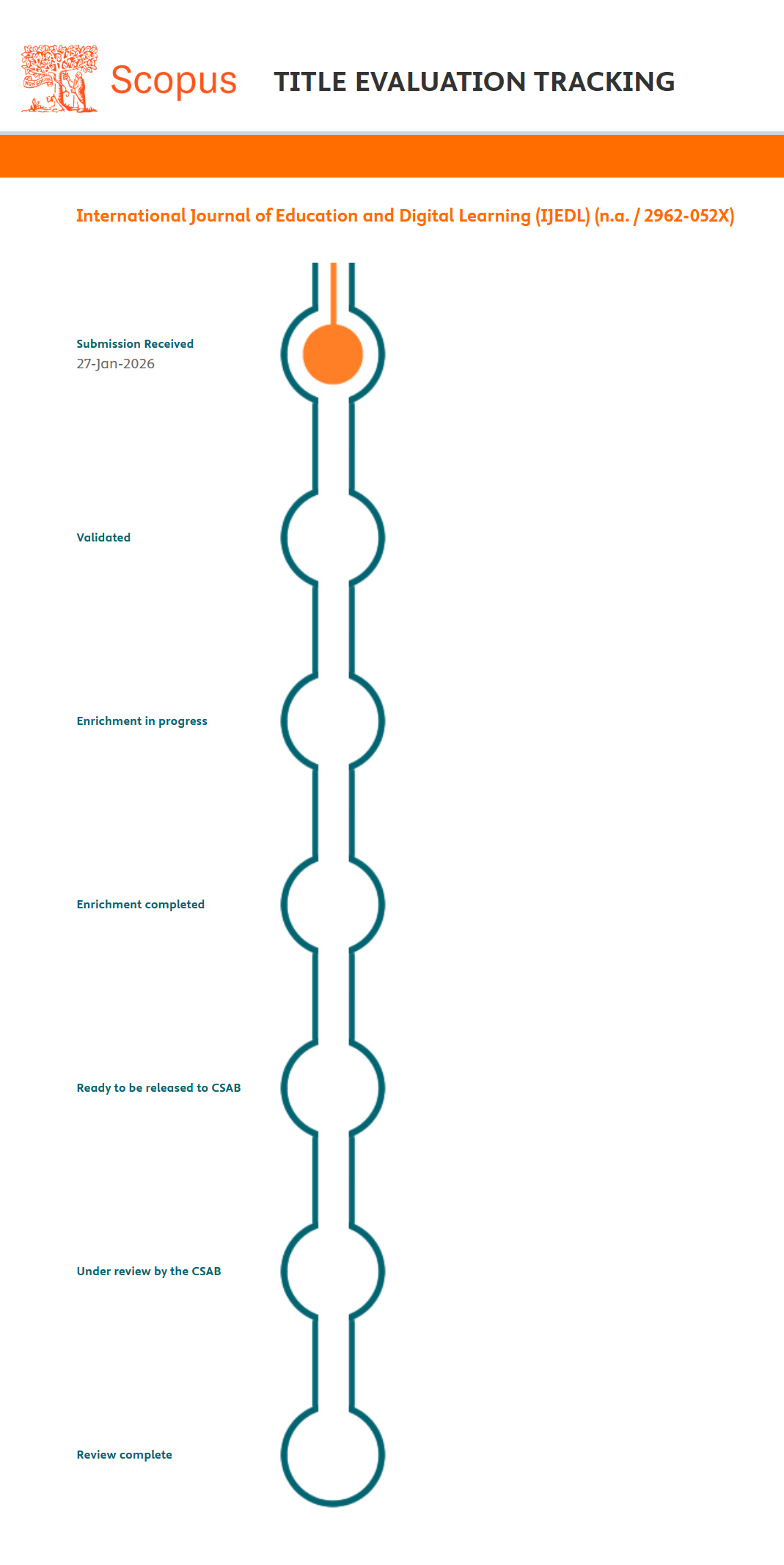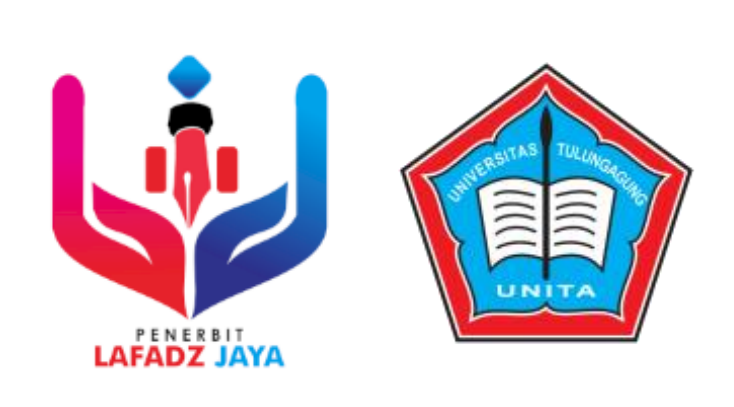Implementation of Character Education in Madrasah Students
DOI:
https://doi.org/10.47353/ijedl.v2i4.131Keywords:
Implementation, Character building, Madrasah StudentsAbstract
The background to this research is the importance of education and character development in students. Problems related to deviations that are far from noble character very often occur in today's young generation. Character education is the initial foundation for instilling character in students so that they become a generation with noble morals. The aim of this research is to determine the implementation of character education in Private Madrasah Tsanawiyah. A qualitative method with a descriptive approach was used in this research, data analysis and examination was carried out by comparing data from several sources and then drawing conclusions. The results of the research show that the strategies implemented by the school have an impact on changing students' attitudes and behavior towards a better direction by reflecting noble character values, such as: religious, honest, tolerant, disciplined, love of the country, friendly/communicative, caring. environment, and responsibility. This is carried out by the entire school community with an Islamic character culture which is the hallmark of Madrasah Tsanawiyah.
Downloads
References
Amri. (2012). Pendidikan Karakter Berbasis Al-Qur’an. Jakarta: Rajawali Pers.
Apiyani, A. (2022). Implementasi Pengembangan Keprofesian Berkelanjutan (PKB) Guru Madrasah Dalam Meningkatkan Keprofesian. JIIP-Jurnal Ilmiah Ilmu Pendidikan, 5(2), 499–504.
Arifin, A. (2024). The Relationship Between Classroom Environment, Teacher Professional Development, and Student Academic Performance in Secondary Education. International Education Trend Issues 2, no. 2: 151–159.
Arifudin, O. (2024). Utilization of Artificial Intelligence in Scientific Writing. Journal of Technology Global 1, no. 2: 131–140.
Arifudin, O. (2023). Pendampingan Meningkatkan Kemampuan Mahasiswa Dalam Submit Jurnal Ilmiah Pada Open Journal System. Jurnal Bakti Tahsinia 1, no. 1: 50–58.
Arifudin, O. (2022). Implementation Of Internal Quality Assurance System In Order To Improve The Quality Of Polytechnical Research.” International Journal of Social Science, Education, Communication and Economics (SINOMICS JOURNAL) 1, no. 3 : 297–306.
Arifudin, O. (2021). Manajemen Strategik Teori Dan Implementasi. Banyumas : Pena Persada.
Chadijah, S. (2017). Kebanggaan Terhadap Bahasa Indonesia (Language Pride) Di Purwakarta. Jurnal Pendidikan Bahasa Dan Sastra Indo 11: 121.
Chadijah, S. (2022). Interferensi Bahasa Dalam Komunikasi Massa Dedi Mulyadi Di Channel Youtube Kang Dedi Mulyadi. Jurnal Bisnis 10, no. 1: 140–152.
Chadijah, S. (2024). Trends In The Development Of Artificial Intelligence-Based Technology In Education. Injotel 2, no. 6: 1722-1733.
Darmawan, I.P.A. (2021). Total Quality Management Dalam Dunia Pendidikan" Model, Teknik Dan Impementasi". Bandung: Widina Bhakti Persada Bandung.
Djafri, N. (2024). Development Of Teacher Professionalism In General Education: Current Trends And Future Directions. International Journal of Teaching and Learning 2, no. 3 (2024): 745–758.
Fikriyah, S. (2022). Peran Orang Tua Terhadap Pembentukan Karakter Anak Dalam Menyikapi Bullying. Jurnal Tahsinia 3, no. 1: 11–19.
Gunawan. (2014). Pendidikan Karakter (Konsep Dan Implementasi). Bandung: Alfabeta
Hadiansah, D (2021). Membaca Perspektif Balanced Scorecard. Bandung: Azka Hafidz Maulana Foundation.
Hanafiah, H. (2022). Implementation Of Character Strengthening In Boarding School Students. International Journal of Education and Digital Learning (IJEDL) 1, no. 2: 49–54.
Haris, I. (2023). Pengenalan Teknis Penggunaaan Software Turnitin Dan Mendeley Dekstop Untuk Meningkatkan Kualitas Karya Ilmiah Mahasiswa Baru.Journal Of Human And Education (JAHE) 3, no. 2: 172–178.
Hoerudin, C. W. (2024). E-Learning as A Learning Media Innovation Islamic Education. QALAMUNA: Jurnal Pendidikan, Sosial, Dan Agama 15, no. 1: 579–594.
Fitria, N. (2023). Manajemen Pengelolaan Media Pembelajaran Pendidikan Islam. Edukasi Islami: Jurnal Pendidikan Islam 12, no. 03: 2239–2252.
Jumiati, E. (2024). Women’s Empowerment, Social Inclusion, And Attitude Change Through A Study Of Sekoper Cinta Model In Cibogo Hilir Village Plered Purwakarta. Community Development Journal: Jurnal Pengabdian Masyarakat 5, no. 1: 1568–1576.
Kartika, I. (2018). The Relationship Between Jigsaw Cooperative Learning Method And Parents Attention With English Learning Achievement Student In Public Junior High School 4 Bogor. 2 Nd English Language and Literature International Conference (ELLiC). 2, no. 2: 313–320.
Kartika, I. (2022). The Effect of Improving Spiritual Quotient and Emotional Quotient on Mental Health in Sya’ban Month at The Pandemic Covid 19 in Jakarta. Al-Wasathiyah: Journal of Islamic Studies 1, no. 1: 35–49.
Kartika, I. (2023). The Influence of Emotional Intelligence and Spiritual Intelligence on Teacher Professionalism at Madrasah Aliyah Attahiriyah Jakarta. History of Medicine 9, no. 1: 266–276.
Koesoema, D. (2007). Pendidikan Karakter, Strategi Mendidik Anak Di Zaman Global. Jakarta: Grasindo.
Mansyur. (2016). Pendidikan Karakter Berbasis Wahyu. Jakarta: Gaung Persada Press Group.
Mardizal, J. (2994-3003. Model Kepemimpinan Transformational, Visioner Dan Authentic Kepala Sekolah Dalam Meningkatkan Mutu Pendidikan Di Era 4.0 Innovative: Journal Of Social Science Research 3, no. 5: 2994–3003.
Mayasari, A. (2021). Pengaruh Media Visual Pada Materi Pembelajaran Terhadap Motivasi Belajar Peserta Didik. Jurnal Tahsinia 2, no. 2: 173–179.
Mayasari, A. (2023). Penerapan Model Pembelajaran Nilai Melalui Pendidikan Agama Islam Dalam Membentuk Karakter Siswa. Antologi Kajian Multidisiplin Ilmu (Al-Kamil) 1, no. 1: 47–59.
Ningsih, I. W. (2024). Manajemen Pembelajaran Pendidikan Agama Islam Dalam Meningkatkan Prestasi Belajar Peserta Didik Di Sekolah Dasar. Jurnal Tahsinia 5, no. 1: 23–37.
Nuary, M. G. (2024). Teacher Strategies In Instilling Nationalist Values In The Millennial Generation In The Technological Era. International Journal of Teaching and Learning 2, no. 4: 954–966.
Nurmala, E. (2022). Makna Implisit Bahasa Kiasan Dalam Tuturan Anne Ratna Mustika: Mempertalikan Komunikasi, Kognisi Dan Pragmatik. Jurnal Bisnis 10, no. 2: 102–110.
Paturochman, I. R. (2024). Pluralism And Multiculturalizm Education. International Journal Of Society Reviews 2, no. 3: 564–573.
Ramli, A. (2024). Analysis of the Influence of Organizational Commitment on Work Discipline of Public High School Teachers. Journal on Education 6, no. 2: 12927–12934.
Rifky, S. (2024). Professionalism Of Educators In Learning Development. International Journal of Teaching and Learning 2, no. 2 (2024): 579–588.
Ropitasari, A. (2023). Manajemen Pembelajaran Pendidikan Agama Islam Dalam Mewujudkan Karakter Religius Pada Peserta Didik. Edukasi Islami: Jurnal Pendidikan Islam 12: 1–14.
Saepudin. (2019). The Effect of Work Ethic on The Professional Competences of University Lecturers at Jakarta of Indonesia. Proceedings of the First International Conference on Administration Science (ICAS 2019) 343: 327–332.
Saepudin, S. (2021). Improving the Ability to Understand the Quran Reading through the Application of the Mind Map Method during the Covid 19 Pandemic in Al-Qur’an Education Institutions Qurrota A’yun at Kutaraja Village, Maleber District, Kuningan Regency. Budapest International Research and Critics Institute-Journal (BIRCI-Journal) 4, no. 4: 14331–14338.
Saepudin. (2022). Pengaruh Kepemimpinan Transformasional Dan Budaya Organisasi Terhadap Etos Kerja Dosen Perguruan Tinggi Islam Di Lldikti Wilayah IV Jawa Barat Indonesia. Jurnal Fakultas Ilmu Keislaman Unisa Kuningan 3, no. 3: 255–273.
Sappaile, B. I. (2024). The Role of Artificial Intelligence in the Development of Digital Era Educational Progress. Journal of Artificial Intelligence and Development 3, no. 1: 1–8.
Sembiring, I. M. (2024). Pendidikan Agama Islam Berwawasan Global Sebagai Dasar Paradigma Dan Solusi Dalam Menghadapi Era Society 5. Innovative: Journal Of Social Science Research 4, no. 2: 305–314.
Sinurat, J. (2022). Pengembangan Moral & Keagamaan Anak Usia Dini. Bandung: CV Widina Media Utama.
Supriani, Y. (2020). Upaya Meningkatkan Motivasi Peserta Didik Dalam Pembelajaran. Jurnal Al-Amar: Ekonomi Syariah, Perbankan Syariah, Agama Islam, Manajemen Dan Pendidikan 1, no. 1: 1–10.
Tanjung, R. (2022). Manajemen Mutu Dalam Penyelenggaraan Pendidikan. Jurnal Pendidikan Glasser, 6(1), 29–36.
Ulfah, U. (2019). Peran Konselor Dalam Mengembangkan Potensi Peserta Didik. Jurnal Tahsinia 1, no. 1: 92–100.
Ulfah, U. (2020). Implementasi Bimbingan Dan Konseling Di Sekolah Dalam Kurikulum 2013. Jurnal Tahsinia 1, no. 2 (2020): 138–146.
Ulfah, U. (2021). Pengaruh Aspek Kognitif, Afektif, Dan Psikomotor Terhadap Hasil Belajar Peserta Didik. Jurnal Al-Amar: Ekonomi Syariah, Perbankan Syariah, Agama Islam, Manajemen Dan Pendidikan 2, no. 1: 1–9.
Uswatiyah, W. (2023). Instilling Religious Character Values in Elementary School Students through Islamic Religious Education Learning. JPPI (Jurnal Penelitian Pendidikan Indonesia) 9, no. 9: 100–107.
VF Musyadad. (2022). Supervisi Akademik untuk Meningkatkan Motivasi Kerja Guru dalam Membuat Perangkat Pembelajaran. JIIP-Jurnal Ilmiah Ilmu Pendidikan, 5(6), 1936–1941.
Wibowo, A. (2012). Pendidikan Karater. Yogyakarta : Pustaka Belajar.
Zubaedi. (2011). Pendidikan Karakter: Konsep Dan Aplikasinya Dalam Lembaga Pendidikan. Jakarta: Kencana.
Downloads
Published
How to Cite
Issue
Section
License
Copyright (c) 2024 Daryaman Daryaman, Annisa Mayasari , Deni Supriadi, Cecep Wahyu Hoerudin , Ari Susandi

This work is licensed under a Creative Commons Attribution-ShareAlike 4.0 International License.












